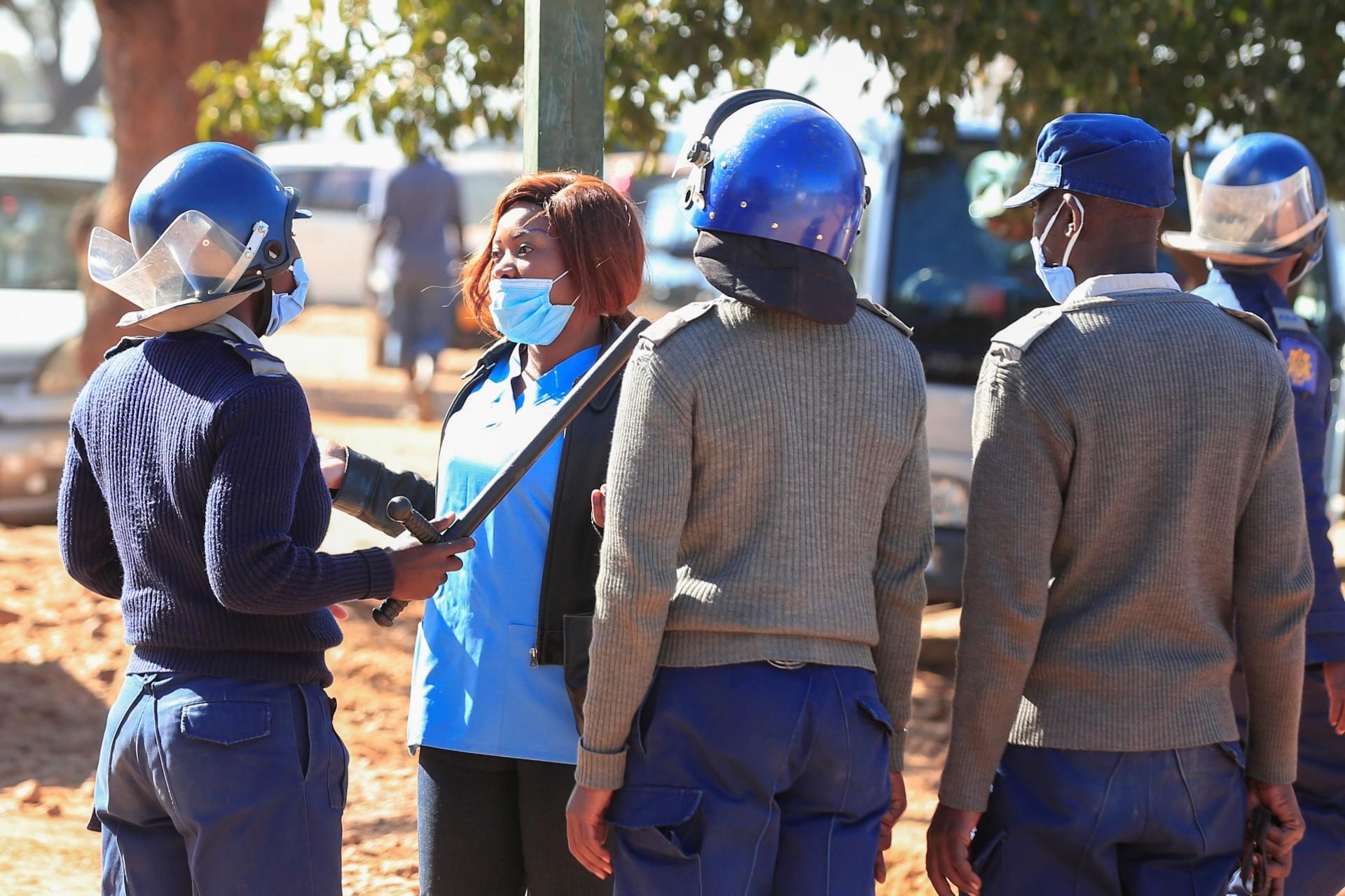Mass arrests in Zimbabwe over coronavirus regulation violations
More than 100,000 people have been arrested in Zimbabwe since March. The country has been under an indefinite lockdown because of the coronavirus pandemic. Officials say the arrests stem from so-called violations of sanitation and safety measures in place to combat the pandemic. For example, unnecessary travel or not wearing masks could result in prison time.
But critics say the arrests are also happening as a way to clamp down on activists and others who oppose the government. Recently, prominent journalist Hopewell Chin’ono was arrested just as groups are starting to organize a nationwide protest on July 31 to demand President Emmerson Mnangagwa steps down.
Related: Zimbabwe health care workers strike over vital equipment
Dr. Norman Matara, with the Zimbabwe Association of Doctors for Human Rights in Chinhoyi, Zimbabwe, spoke with The World about how the lockdown is affecting the country’s economic and political stability.
Carol Hills: What are Zimbabweans being arrested for during this lockdown?
Dr. Norman Matara: Zimbabweans are being arrested for allegedly breaching the lockdown regulations. One of the reasons is that they do not have face masks or they are traveling unnecessarily. But on the ground, people are traveling because our country is, as you know — 95% of the people are self-employed. People are always traveling, looking for food, looking for jobs.
Critics are accusing the government of using these arrests as a way to crack down on the opposition. What’s the evidence of that?
Definitely. We have seen that the lockdown is now being used as a smokescreen to oppress opposition players and also human rights activists. We note that when someone is from the ruling party, they are out and they are gathering. Just last week, the first lady held a gathering with more than 1,000 people present. But the law says that a gathering of more than 50 people is prohibited. If the opposition does that, they are quickly arrested and they are detained and they are put into prison.
A prominent whistleblowing journalist, Hopewell Chin’ono, was arrested recently. His lawyer says he was abducted. Who is he and why was he arrested?
Hopewell Chin’ono is a journalist in Zimbabwe. Over the past few months, he has been very vocal — especially on social media. Recently, he was working on a story which exposed corruption in the government. He was arrested yesterday. Actually, his arrest was sort of an abduction because the police officers that went to his house, they did not have a warrant of arrest. They did not use a search warrant. They actually broke into his house and he was arrested. He was not given a chance to speak to his lawyer, by that time. Now he’s being accused of inciting the public to riot [to] overthrow […] the government.
Related: Mothers and newborns pay the ‘price’ during Zimbabwe medics strike
And Hopewell Chin’ono actually videotaped his own arrest, as I understand it. So, people are saying they are seeing that online.
Yes. He actually videotaped his arrest on Facebook Live. I think that was a smart move because, you know, with our government, this record of abducting people, opposition players, human rights activists, they are abducted, though the government will deny that.
There’s also a certain timing in all of this. There is a big opposition demonstration planned for July 31. And Hopewell Chin’ono was very vocal about that online. And is there a sense that the government is trying to intimidate the opposition from taking part in that planned demonstration?
Definitely. It’s a trick that has been used by the government over the years. Everyone always vocal against the government is arrested, they are detained and they are charged with silly charges. They will give you, as a bail condition, a condition that you are not supposed to use social media, you are not supposed to address a gathering, you are not supposed to comment on politics.
Related: Emergency authoritarianism? Hungary’s Orbán uses coronavirus to seize more power
Is your own group, the Zimbabwe Association of Doctors for Human Rights, being targeted through all this?
Yes. Our organization has been targeted before, although personally we have not been directly attacked in terms of arrest or in terms of abductions or anything. But it’s mainly in the state papers where they talk negatively about our organization and we think that it’s a form of indirect intimidation.
Related: Mothers and newborns pay the ‘price’ during Zimbabwe medics strike
Do you plan to take part in the July 31 demonstration?
Yeah, definitely. We have to take part because it’s a demonstration about our life. It’s not mainly politics — it is the issue of bread and butter. We have to fight for our lives as Zimbabweans, and we have been left with no option. I think people have been trying to give this government a chance. But people are just dying. The hospitals are not working. People are just dying. There’s no access to emergency services. Pregnant women are delivering stillbirths because they cannot get cesarean sections. So people cannot continue to watch things like that happening.
This interview has been condensed and edited.
